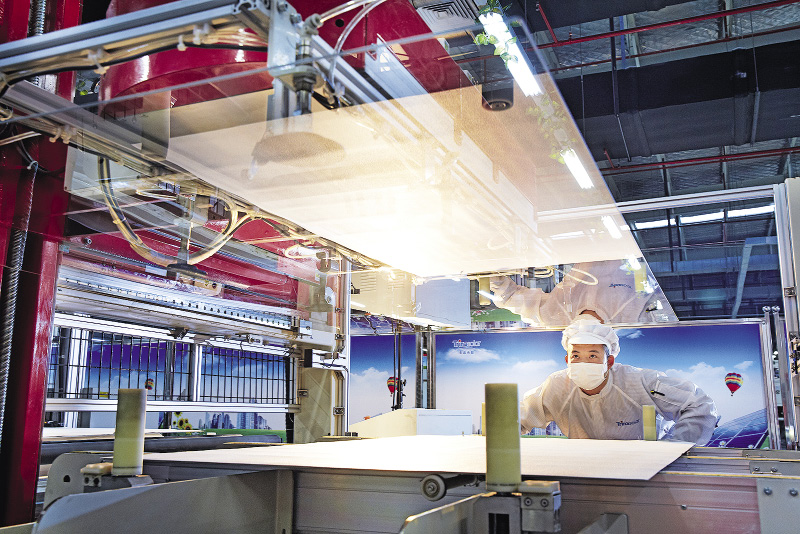U.S. Trade Representative Robert Lighthizer yesterday confirmed 25% tariffs on $16 billion worth of goods from China in the second round of import duties imposed under the Section 301 process – which permits the president to take action to remove a measure deemed to be damaging to U.S. interests or in violation of international agreements, under the U.S. Trade Act of 1974.
Among the 279 product lines included on the list are solar cells and modules, however it is unclear how much the move will affect the U.S. solar industry. After two rounds of anti-dumping and countervailing duties were imposed on Chinese solar products, in 2012 and 2014, many Chinese PV makers set up cell and module factories in Southeast Asia, and imports directly from China slowed to a trickle.
In the first 11 months of 2017, Chinese cells and modules represented only 11% of U.S. solar imports.
Additionally, most of the new U.S. factories planned by Chinese manufacturers will not be affected. First Solar and Jinko Solar are constructing factories in the United States – First Solar will make thin film modules from raw materials in Ohio and Jinko says it will import cells from Malaysia for its Florida facility.
Popular content
It is unclear where Korean manufacturer Hanwha Q Cells will source cells for its planned module factory in Georgia.
A third round of Section 301 duties is being considered. It has been proposed inverters, AC modules and non-lithium batteries should be included in this round, with tariffs of 10% – potentially rising to 25% – suggested. Comments are still being taken for this round, with a hearing scheduled for August 20-23.
This content is protected by copyright and may not be reused. If you want to cooperate with us and would like to reuse some of our content, please contact: editors@pv-magazine.com.


1 comment
By submitting this form you agree to pv magazine using your data for the purposes of publishing your comment.
Your personal data will only be disclosed or otherwise transmitted to third parties for the purposes of spam filtering or if this is necessary for technical maintenance of the website. Any other transfer to third parties will not take place unless this is justified on the basis of applicable data protection regulations or if pv magazine is legally obliged to do so.
You may revoke this consent at any time with effect for the future, in which case your personal data will be deleted immediately. Otherwise, your data will be deleted if pv magazine has processed your request or the purpose of data storage is fulfilled.
Further information on data privacy can be found in our Data Protection Policy.